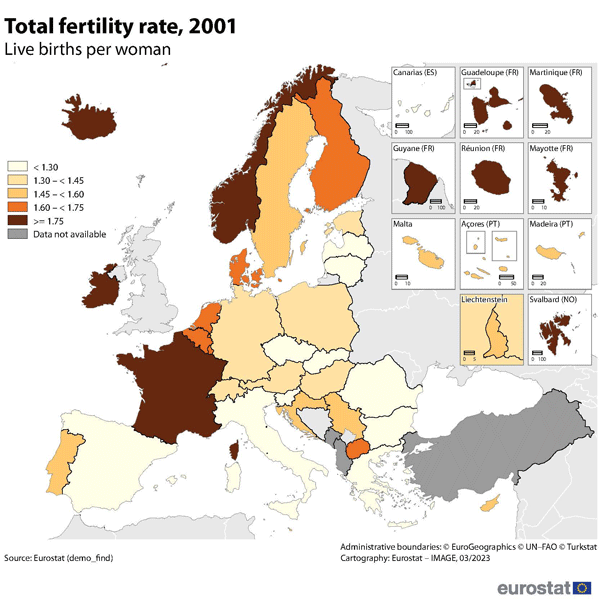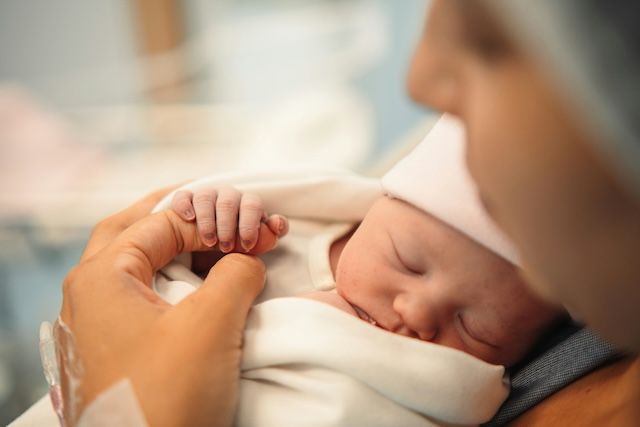Coronavirus Baby Boom? EU Sees Increase in Births in 2021
Eurostat has reported the number of births in the European Union in 2021 are marking the first increase since 2016.
Eurostat, the statistical office of the European Union, has recently released data showing that there has been a slight increase in the number of births in the European Union in 2021. The increase, which is the first since 2016, has led to speculation about whether or not the COVID-19 pandemic had an impact on the birth rate in the EU.
In 2021, a total of 4.09 million babies were born in the EU, which is a 20,000 increase from the previous year. This slight increase is a welcome change from the downward trend in the number of children born in the EU, which began in 2008 when 4.68 million children were born. In 2020, the number of births in the EU was 4.07 million.
 Image by EuroStat
Image by EuroStat
The increase in the number of births in the EU in 2021 has been accompanied by an increase in the fertility rate. The fertility rate, which is the average number of children a woman is projected to have over her lifetime, increased for the first time since 2016. The EU average fertility rate in 2021 was 1.53 live births per woman, up from 1.50 in 2020.
France had the highest fertility rate in the EU in 2021, with 1.84 live births per woman, followed by Czechia (1.83), Romania (1.81), and Ireland (1.78). In contrast, Malta had the lowest fertility rate, with 1.13 live births per woman, followed by Spain (1.19) and Italy (1.25).
Although the lockdown measures implemented throughout Europe during the COVID-19 pandemic had led to speculation about whether there would be a baby boom, birth rates actually decreased in 2020. However, the slight increase in the number of births in the EU in 2021 has led some scientists to believe that people had simply waited for the initial shock of the pandemic to pass before having children.
The increase in the number of births in the EU in 2021 is a positive sign, but it remains to be seen whether or not this increase will continue in the years to come. The downward trend in the number of children born in the EU since 2008 has been a cause for concern, as it could lead to demographic challenges for the EU in the future.
The COVID-19 pandemic has had a significant impact on many aspects of life, and the birth rate in the EU is no exception. The slight increase in the number of births in the EU in 2021 is a welcome change from the downward trend seen in previous years. While the increase in the number of births may be a sign that people are feeling more optimistic about the future, it remains to be seen whether or not this trend will continue in the years to come.
As family plannings are often strongly correlated to financial stability; the current economic uncertaint, and job insecurity may lead individuals and couples to delay having children or decide not to have children at all. Conversely, if financial conditions are favorable, with low unemployment rates and high levels of economic stability, people may feel more comfortable having children. Factors such as the cost of child-rearing, access to affordable childcare, and government policies on family support can also influence birth rates.
Therefore, it remains to be seen if the broader economic and social factors that affect birth rates, will increase the individual to decide towards pro-child.





